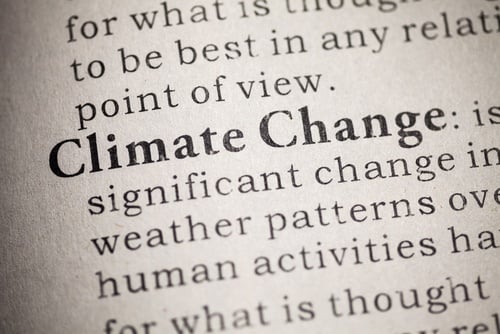MA Passes Landmark Climate Change & Environmental Justice Bill


Friday, March 23rd, Massachusetts Governor Charlie Baker signed into law Senate Bill 9 "An Act Creating a Next Generation Roadmap for Massachusetts Climate Change Policy" that includes provisions described as "some of the most aggressive greenhouse gas emissions reductions targets in the country"
The ultimate goal of the bill is for Massachusetts to achieve net-zero carbon emissions by 2050, and includes 5 year sublimit goals to that end for impacted sectors (transportation, buildings, etc).
The bill also serves to codify Environmental Justice provisions into Massachusetts law, to both define disparately impacted communities, and provide new tools and protections for those communities going forward. As part of the Environmental Justice approach, $12 million in annual funding was established for the Massachusetts Clean Energy Center to create a pathway to clean energy for environmental justice communities, minority and women owned businesses and fossil fuel industry workers.
The Department of Public Utilities (DPU) is additionally required to balance equity and accessibility as part of their decision making process regarding regulations in addition to safety, system security, and emissions reductions. Lastly, the Massachusetts Environmental Policy Act (MEPA) is expanded to require environmental impact studies for all projects that impact air quality within a mile of Environmental Justice Neighborhoods and evaluate not just the proposed project's impact but the cumulative impact to the area of projects over time.
Other major takeaways from the bill:
- Utilities - first-time greenhouse gas emissions standard for municipal lighting plants, requiring 50% non-emitting electricity by 2030, 75 percent by 2040 and net-zero by 2050.
- Solar - The bill prioritizes equitable solar program access for low-income neighborhoods. It also provides solar incentives for businesses by exempting them from net metering cap so they can set solar up on business properties to offset electric usage (and cost).
- Wind - utilities will be required to buy an additional 2,400 megawatts of offshore wind
- Natural Gas - Enhanced pipeline safety goals that require adopting provisions including increased fines for safety violations, and enhanced training/certification requirements for utility contractors. Also sets targets for leak reduction along pipelines.
- Technology & Other Related Items: Senate Bill 9 also sets benchmarks for clean energy technology - electric vehicles, EV charging stations, anaerobic digesters, solar technology, and energy storage technology. Additionally, on the consumer side there are new regulations set for appliance energy efficiency.
Obviously, the bill is very comprehensive and there are a lot of details and policy changes involved, some of which we won't know the exact implications of until new projects that are under its scope start rolling out. You can read more on the exact provisions at the Mass.gov website if you are interested in digging into the details, starting with the official press release here: Governor Baker Signs Climate Legislation to Reduce Greenhouse Gas Emissions, Protect Environmental Justice Communities


